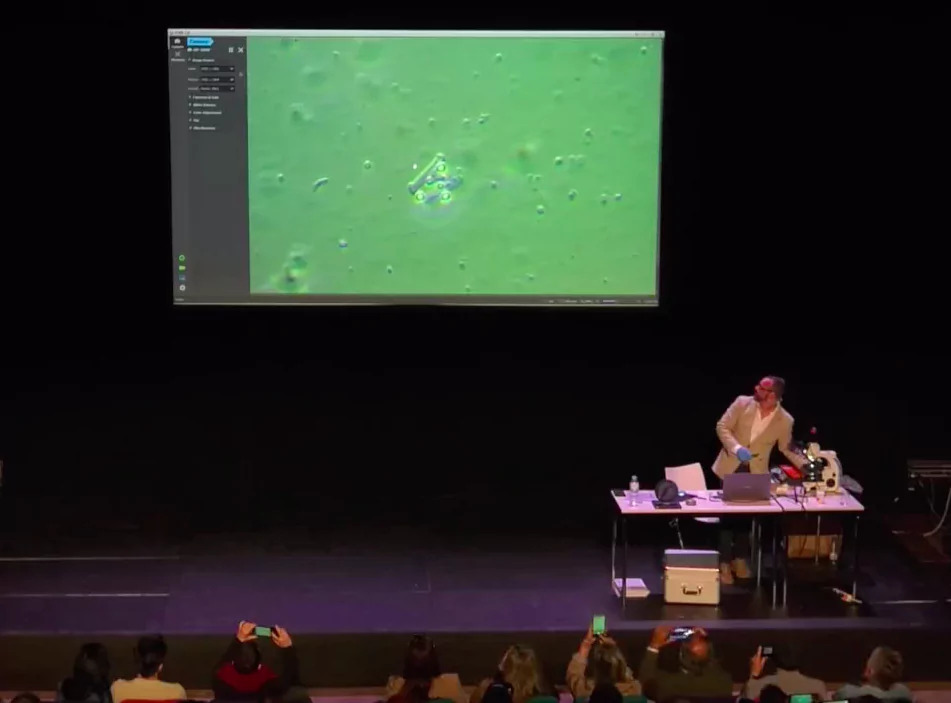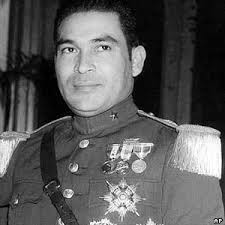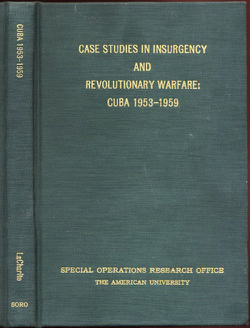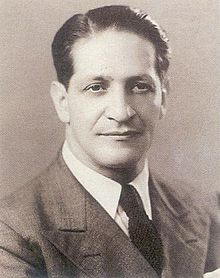Fidel Castro Was a CIA Agent
May 12, 2015
 More evidence that Communism is a total sham. Its role is to
More evidence that Communism is a total sham. Its role is toprevent genuine reform and impose tyranny in a feel-good disguise.
Fulgencio Batista, (Cuban President from 1953-59) was the Gaddafi of his day, creating a dangerous example of economic independence from the bankers.
The "revolutionary" Fidel Castro was nothing more than a banker shill tasked with removing him and reducing Cuba to penury and servitude, no different from any other US-installed fascist dictator.
Molecule: "The full story of Castro is even worse, but eventually it will come out. I'm actually already pushing the envelope -- the point is that Castro was on "the payroll" of Citibank and the CIA from the beginning."
Makow Comment: I'm not sure what Molecule's sources are but his account seems plausible. After all the CIA and Communism are both instruments of the central bankers. If Castro was indeed CIA, we will look at modern history in a new light. The Bay of Pigs invasion, for example, was meant to fail, in order to discredit JFK and make Castro look good. A real US invasion of Cuba would have been justified. Now I understand why it didn't happen.
Jim Perloff: "Note the absurdity: the U.S. spent billions and sent 500,000 troops around the world to Vietnam to "fight communism," yet it wouldn't lift one finger to fight communism in its own backyard." (See Comments)
by Molecule
(henrymakow.com)
In the 1950's, Illuminati bankers David Rockefeller and Eugene Meyer organized a Cuban partnership, called the Moa Bay Mining Co.
As his appartchiks, Rockefeller hired the three stooges of the Caribbean, namely Fidel Castro, E. Howard Hunt and George H.W. Bush.
Rockefeller's Citi-Bank provided the financial support that Fidel Castro needed for his ouster of Batista, and that Rockefeller had profited immensely from Castro's fictitious "expropriation" of Moa Bay mining fields.
Castro received his training in the arts of economic terrorism and guerrilla warfare from US Army Special Forces, Col. William A. Morgan of Ohio.
Rockefeller maintained actual physical control of all of "Castro's" oil and mining operations. Meanwhile he collected extravagant profits from endless "Pentagon bailouts" by the U.S. taxpayer.
 Castro was a Meyer-Rockefeller-Dulles lackey. With Zapata Oil as cover, he soon became Bush's favorite candyman. Castro was doubtless pre-briefed on the impending April 1961 invasion, by a clutch of clueless Miami Cubanos, who were lead straight to their slaughter in a perfect military gauntlet, a crossfire in a long and narrow bay of water at the "heel" of a unique Cuban landmass, in fact a marine swampland drenched in oil, known as the Zapata.
Castro was a Meyer-Rockefeller-Dulles lackey. With Zapata Oil as cover, he soon became Bush's favorite candyman. Castro was doubtless pre-briefed on the impending April 1961 invasion, by a clutch of clueless Miami Cubanos, who were lead straight to their slaughter in a perfect military gauntlet, a crossfire in a long and narrow bay of water at the "heel" of a unique Cuban landmass, in fact a marine swampland drenched in oil, known as the Zapata. Air cover would have made no difference at all. The successful humiliation of JFK in the Bay of Pigs operation led straight to rumors of Castro's absolute Invincibility. Castro the Maximum was trained and armed by the Pentagon and financed by the CIA and Citibank.
The person who delivered his paychecks was a Ukrainian country girl, who lived in a small cottage in Greenwich Connecticut. As cover, she sold homemade soaps.
The CIA even put out rumors that hundreds of assassination attempts on Castro had all failed. If they were real at all, they were coordinated through Castro's business partners at Moa Bay Mining and Zapata Oil. With rumors like that, the comic-book status of Castro as "The Invincible One" was assured. The assassination of an American President soon followed.
BATISTA
 Castro replaced Gen. Fulgencio Batista,(1901-1973,) left. In Castro's propaganda, Batista was characterized as a "racially impure" Cuban nationalist. Following the collapse in the Cuban economy in the 1930's, Batista crushed Marxist agitators, and established a constitution in 1940 based on the sovereignty of the Cuban people.
Castro replaced Gen. Fulgencio Batista,(1901-1973,) left. In Castro's propaganda, Batista was characterized as a "racially impure" Cuban nationalist. Following the collapse in the Cuban economy in the 1930's, Batista crushed Marxist agitators, and established a constitution in 1940 based on the sovereignty of the Cuban people. Cuba's new constitution was therefore contrary to Teddy Roosevelt's intrusive Platt Amendment of 1901, which attempts to ensconce an army of Zionist know-it-alls and Marine smarty-pants in "Gitmo," with the authority "to take any action necessary to protect Wall Street-Zionist interests in the Caribbean." (See Gen. Smedley Butler.)
Batista's 1940 Constitution asserted Cuban sovereignty over national currency for circulation. Batista chartered a Cuban National Bank, and an Agricultural and Industrial Development Bank, to finance internal economic development, intending to build up a stable middle class of inventors, intellectuals and professionals.
(See 1950s CIA training manual by Special Operations Research Office, "Task Revolt" editor Norman La Charite, Case Study in Insurgency and Revolutionary Warfare -- Cuba.)
Under Batista, Cuba's natural agricultural productivity and machine tool inventiveness finally had support of a local government. Had Batista's nationalist policies been applied without Marxist-Zionist banker intervention, it would have revived the Cuban economy.
But the Marxist-Zionist pirate-bankers who always work through their monopolistic control of foreign trade. Castro's endless Cuban "trade deficits" were orchestrated to prevent any emergence of internal economic sovereignty, especially for agriculture (for food and health, not sugar and money) and for development of Cuba's immense mineral wealth.
Batista also made provisions to dissolve the extreme concentration of economic power in the hands of a few Zionist-owned sugar companies -- who by use of fancy lawyers, including Fidel Castro, and by compromised judges, had accumulated ownership of 70% of Cuba's arable land, thereby unleashing unstable (i.e. "Marxist-ready") populations of wandering tenant farmers, penniless wage-workers and peasants living by subsistence.
 To prevent a Marxist-Zionist takeover of Cuba, by an internal insurgency using a "liquefied" and "Marxist-ready" population, Batista proposed educational reforms for the formation of a creative middle class, and for redistribution of the vast barren and unused lands of the "U.S.-owned" sugar plantations to Cuban family farmers.
To prevent a Marxist-Zionist takeover of Cuba, by an internal insurgency using a "liquefied" and "Marxist-ready" population, Batista proposed educational reforms for the formation of a creative middle class, and for redistribution of the vast barren and unused lands of the "U.S.-owned" sugar plantations to Cuban family farmers.In short, if the Batista model of Cuba were to succeed, it would have set a dangerous example for the economic potential of constitutional sovereignty, in Cuba, in the United States, and throughout the Caribbean and South and Central America. Batista's concept of Cuban national sovereignty had to be destroyed.
BANKER HITMAN?
Quoting from the above mentioned CIA training manual, by Norm La Charite, "Castro was a rebel by and in reality long before Batista's second period of power. As president of the Law School student body, he became involved in campus politics, which many times reached violent proportions at the University of Havana. He was also one of the founders of Unión Insurreccional Revolucionaria (UIR), a terroristic organization [later to emerge as model for Al Qieda], which allegedly dealt in political assassination. Castro was arrested several times in connection with murder, but was never convicted. In 1947 he took part in an abortive plot to overthrow Rafael Trujillo, then dictator of the Dominican Republic. The Cayo Confites expedition, as it is called, was stopped before it got underway.
 Many researchers propose that Castro was involved in the 1948 assassination of a popular Columbian politician, Jorge Eliécer Gaitán (1903 - 1948). It is widely speculated that Gaitán would likely have been elected President had he not been assassinated on April 9, 1948. Castro had attempted to recruit Gaitán earlier to his cause, but Gaitán had repeatedly declined and was assassinated because he was too politically influential and would have countered the Cold War objectives of the USSR in the Caribbean.
Many researchers propose that Castro was involved in the 1948 assassination of a popular Columbian politician, Jorge Eliécer Gaitán (1903 - 1948). It is widely speculated that Gaitán would likely have been elected President had he not been assassinated on April 9, 1948. Castro had attempted to recruit Gaitán earlier to his cause, but Gaitán had repeatedly declined and was assassinated because he was too politically influential and would have countered the Cold War objectives of the USSR in the Caribbean.Gaitán was a Bogatá attorney who gained national popularity by successfully defending striking workers at the United Fruit Company. UFC was represented by Sullivan & Cromwell, a N.Y. City law firm of which John Foster Dulles was partner. (Dulles was also Sec. of State; his brother Allen was Director of the CIA; and John Moors Cabot, past president of UFC, was Asst. Sec. of State for Inter-American Affairs.) In his speeches, Gaitán distinguished between the "political country," which was controlled by an oligarchy through use of fictitious internal struggles, orchestrated between "Liberal" and "Conservative" factions, and the "national country," which responds to the real political and economic needs of a nation of people.
------------
Related- Body Guard Exposes Castro as Billionaire Drug Dealer
Castro Profited from Communist Scam - History of Communist Takeover
Fidel Castro- Story of a Monster
First Comment by Marcos:







HV said (May 13, 2015):
Interesting article on Fidel. There is indeed little doubt that at some point in his career, Fidel worked with the CIA. Cuba was one of those countries where this was absolutely a necessity for anyone aspiring to a career in politics. Thus, Castro had at least one CIA agent assigned to supervise him. For example, Neill Macaulay (one of my professors at the University of FLorida), who published "My years as a Castro Rebel" and who was a heavy weapons platoon commander during the insurgency led by Castro.